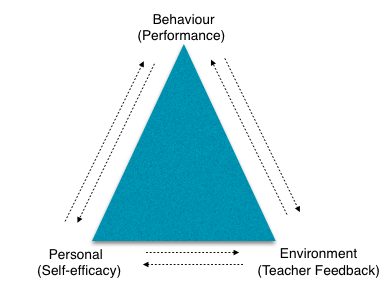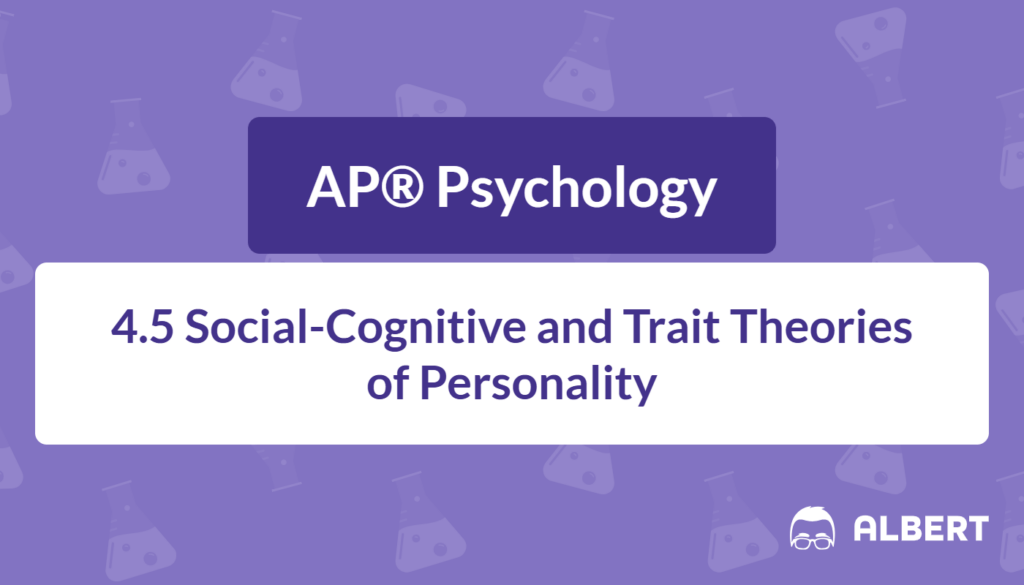What We Review
Personality describes the unique ways people think, feel, and behave. Psychologists often explore theories that explain how personality develops and why it varies. One major approach that helps clarify personality formation is Social-Cognitive Theory. Understanding this theory can provide students, educators, and others with a deeper insight into human behavior.
This article explains social-cognitive theory, including the concept of reciprocal determinism, and shows how ideas like self-concept, self-efficacy, and self-esteem are essential parts of the social-cognitive view. Finally, it demonstrates how this theoretical perspective connects to real-life applications and why it matters.
Introduction
Personality theories are important because they offer different lenses for understanding individual differences. Knowing why people act the way they do can benefit areas like education, therapy, and everyday relationships.
In psychology, social cognition helps explain how individuals learn and adopt behaviors in social contexts. By examining social-cognitive theory, it becomes possible to appreciate the balance between internal factors, external influences, and learned behaviors.
What Is Social-Cognitive Theory?
Social-cognitive theory is the viewpoint that personality results from how people interact with their environment and interpret experiences. According to this theory, thoughts, behaviors, and external situations continuously influence each other. Albert Bandura, a key figure in social-cognitive theory, introduced the idea that individuals learn by watching others, developing ideas about what might happen, and then adjusting their actions.
Social-cognitive theory stands out because it emphasizes that thinking patterns strongly shape personality. By understanding these thought processes, it becomes easier to realize why people react differently. This theory also highlights learning, motivation, and decision-making, making it very relevant for students.
Components of Social-Cognitive Theory
1. Reciprocal Determinism

Reciprocal determinism is a core idea of social-cognitive theory. It suggests that personality emerges from the interaction of three factors:
- Behaviors (what a person does)
- Personal factors (attitudes, thoughts, emotions)
- Environmental influences (social surroundings, culture)
Each factor can both influence and be influenced by the others. Therefore, learning does not happen in isolation. Instead, personal beliefs, social environments, and actions all work together to shape a person’s consistent behavioral patterns.
Example of Reciprocal Determinism
Imagine a student who struggles in math class:
- The student believes math is too difficult (personal factor).
- This belief causes the student to rarely ask questions in class (behavior).
- Because the student does not ask questions, the teacher might assume they are comfortable with the material (environmental influence).
In turn:
- The teacher provides less targeted help, reinforcing the student’s struggle (environment).
- The student continues to feel math is unmanageable (personal factor), and the cycle continues.
Step-by-Step Example Illustration
- Identify the personal factor: Negative belief (“I’m bad at math”).
- Recognize the behavior: Not asking questions or seeking help.
- Note the environmental response: Less assistance provided, possibly leading to further frustration.
- Observe how the student’s belief strengthens: The student’s low confidence grows, solidifying negative expectations.
2. Self-Concept
Self-concept refers to the overall view a person has of themselves—the collection of beliefs, attitudes, and personal identities. It encompasses how individuals see their abilities, roles, and place in society. According to social-cognitive theory, self-concept develops through experiences and interactions with the environment.
By carrying a healthy self-concept, a person is more likely to adapt effectively when facing challenges. In contrast, a distorted self-concept can make it difficult to cope. Social-cognitive theory points out that how someone thinks about themselves influences what they do and how they interpret feedback.
Example of Building Self-Concept
A student joins a debate club and realizes they can speak confidently in front of others. This experience leads to a stronger self-concept as a good public speaker. Over time, the student may also come to view themselves as a leader in group settings.
Step-by-Step Example Illustration
- Initial action: Joining a debate club.
- Environmental feedback: Positive reactions from teammates and the coach.
- Personal factor: Awareness of personal competence.
- Impact on self-concept: Confidence grows, reinforcing a sense of capability in public speaking.
3. Self-Efficacy
Self-efficacy describes a person’s belief in their ability to perform tasks or reach goals. It plays a significant role in how individuals approach challenges. Someone with high self-efficacy is more likely to set ambitious objectives and persevere in the face of setbacks.
Because self-efficacy centers around “can-do” beliefs, it shapes the motivation to learn and accomplish. Additionally, it ties directly to reciprocal determinism—how a person’s confidence (personal factor) influences both behavior (persistence) and environment (feedback from others).
Example: Self-Efficacy in Action
Consider a student who aims to solve a complex puzzle:
- Confidence in puzzle-solving skills (high self-efficacy) encourages them to start the puzzle eagerly (behavior).
- Problem-solving behaviors lead to some early successes (environmental feedback).
- These small wins strengthen the student’s belief in their puzzle-solving ability.
4. Self-Esteem
Self-esteem is the general sense of self-worth or the value a person places on themselves. While similar to self-efficacy, self-esteem focuses on overall self-valuation, not just skill in one area.
People with high self-esteem tend to recover more quickly from rejection or failure because they maintain a belief in their overall worth. However, self-esteem alone does not guarantee success in specific tasks. That is where self-efficacy (confidence in certain abilities) becomes relevant.
Example: Self-Esteem Impact
A young athlete with high self-esteem may keep a positive attitude after losing a game. Rather than feeling defeated, they believe the loss does not define them. As a result, they may train harder to improve for the next match.
Practical Applications
Understanding these theories of personality has many real-world benefits:
- In education, recognizing reciprocal determinism helps teachers design supportive learning environments, especially for students who hold negative beliefs about their abilities.
- In therapy, clinicians can guide clients to restructure thought patterns using self-concept and self-efficacy tools.
- In the workplace, awareness of personality traits and social-cognitive factors helps managers create motivational conditions and team dynamics that foster positive behaviors.
Studying social cognition, defining social-cognitive theory, and measuring personality traits all contribute to a more nuanced view of human behavior, which can be applied in daily life, from goal setting to relationship building.
Practice Problem: Applying Social-Cognitive Principles
Scenario: Chris notices a struggle with public speaking. Despite preparing, Chris feels anxious about making mistakes in front of the class. Over time, Chris avoids volunteering for presentations, which leads to limited speaking experience. Classmates rarely ask Chris for speaking advice, so Chris continues to doubt his personal abilities.
Step-by-Step Solution:
- Identify Personal Factor: Chris’s belief, “I will make mistakes and embarrass myself.”
- Behavior: Avoiding presentations and missing chances to practice.
- Environmental Influence: Classmates do not see Chris practice, so they do not offer support or feedback.
- Reciprocal Determinism in Action: Chris’s fear (personal factor) influences behavior (avoidance), leading to an environment lacking peer support. This cycle reinforces Chris’s fear.
- Possible Intervention: Building self-efficacy with small speaking tasks could break the cycle. For example, short, casual speeches in front of a friend group can create positive experiences, gradually boosting confidence.
Quick Reference Chart
Below is a quick guide to the key terminology:
| Term | Definition |
| Social-Cognitive Theory | A theory stating personality develops through the interaction of thoughts, behaviors, and context. |
| Reciprocal Determinism | The process in which behavior, personal factors, and environment all influence each other. |
| Self-Concept | A person’s view of themselves, based on experiences and reflections. |
| Self-Efficacy | Belief in one’s ability to succeed in specific situations or accomplish tasks. |
| Self-Esteem | Overall sense of worth or personal value. |
Conclusion
Social-cognitive theory offers a powerful explanation for how personality is shaped through learning, thinking, and interaction with the environment. By exploring reciprocal determinism, self-concept, self-efficacy, and self-esteem, students gain tools to better understand themselves and others.
In the AP® Psychology classroom and beyond, these concepts support more compassionate, informed, and effective approaches to personal growth, education, and human connection.
Sharpen Your Skills for AP® Psychology
Are you preparing for the AP® Psychology test? We’ve got you covered! Try our review articles designed to help you confidently tackle real-world AP® Psychology problems. You’ll find everything you need to succeed, from quick tips to detailed strategies. Start exploring now!
- Trait Theory of Personality: AP® Psychology Review
- Theories of Motivation: AP® Psychology Review
- Psychology of Emotion: AP® Psychology Review
Need help preparing for your AP® Psychology exam?
Albert has hundreds of AP® Psychology practice questions, free response, and full-length practice tests to try out.








